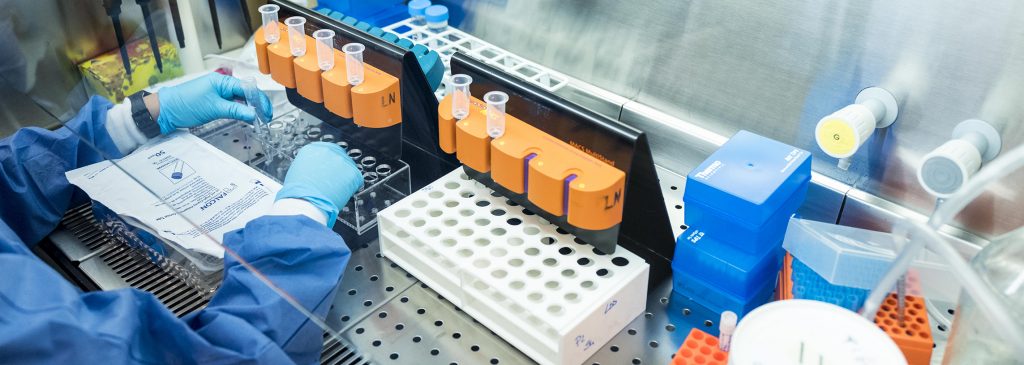Fondazione Telethon has recently learned that a patient suffering from a rare immunodeficiency of genetic origin, ADA-SCID, and treated in 2016 with gene therapy has developed leukemia.

The patient immediately underwent the necessary treatment to treat the leukemia: our first thoughts go his/her family, hoping that the treatments undertaken will be effective and allow him/her to return to a normal life.
At the same time, the regulatory authorities have been informed and in-depth analyses have been initiated to understand the causes that led to the development of leukemia: pending completion of these tests, the administration of the drug to other patients is temporarily suspended.
Since 2016 this therapy, developed from the important studies conducted at the San Raffaele-Telethon Institute for Gene Therapy (SR-Tiget) in Milan, has been approved by the European Medicines Agency and is available in the European Union under the name of Strimvelis. Among the first gene therapies ever to be made available, Strimvelis provides, thanks to a single administration, the correction of the patient’s bone marrow stem cells with a vector of viral origin, which introduces a correct and functioning version of the defective gene in their genome.
Since 2000 there are a total of 40 patients affected by ADA-SCID who have received the gene therapy developed at SR-Tiget, considering both the experimental product administered in clinical trials and in compassionate use, and the commercial drug: many of these patients have been followed for more than 10 years and no one developed any tumor after the administration of the therapy.
In the 20 years of research that led to the approval of Strimvelis, the potential risks have been widely studied and evaluated, including the possibility that the vector could enter a "wrong" point in the genome and trigger a tumor transformation. As for any drug, the potential risks have been assessed in relation to the actual benefits, the severity of the disease, the availability of therapeutic alternatives and their respective risks.
In 2016, European regulatory authorities considered that, based on the available data, gene therapy represented a valuable opportunity for patients with a serious and otherwise incurable disease. ADA-SCID strongly compromises the immune system from the first months of life, with recurrent and difficult to treat infections, and can lead to death within the first year of life if no action is taken. The only potentially resolutive option before the development of gene therapy was bone marrow transplantation: an invasive procedure which presents its own risks, even serious ones, according also to the degree of donor compatibility.
Gene therapy offered the prospect of a future to this and all other patients treated so far, who did not have a family compatible bone marrow donor. Like all drugs it is not completely risk-free, but the hope is that thanks to research it can be further refined, improving its effectiveness and safety: a commitment that Fondazione Telethon and its scientists will continue to maintain.